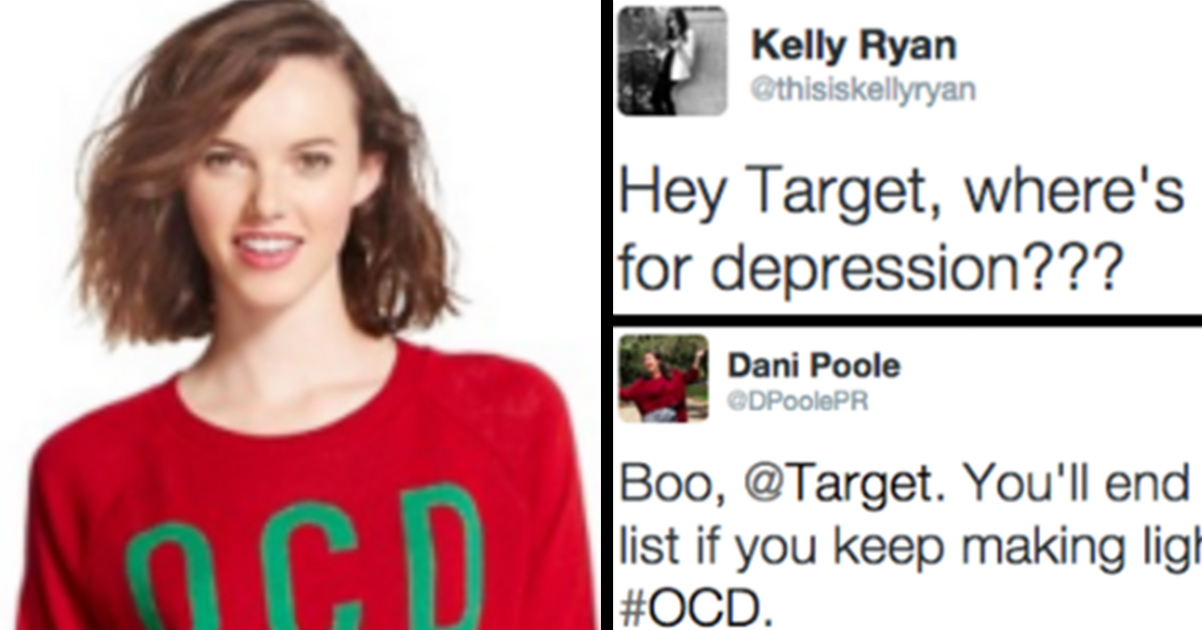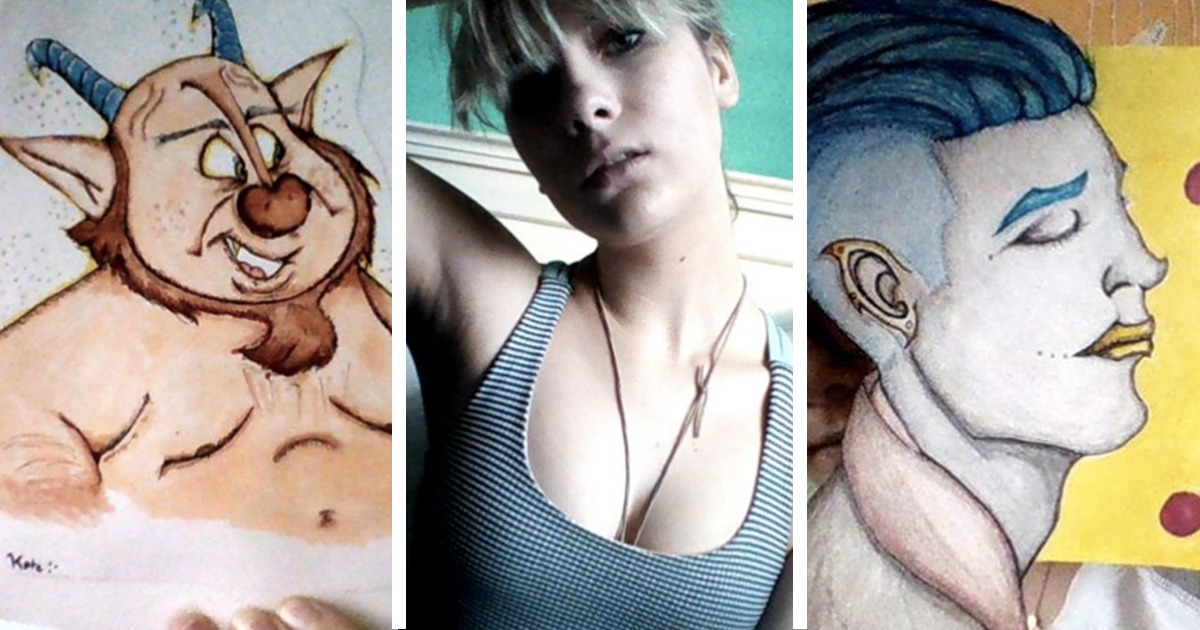5 Phrases You Might Not Realize Are Offensive to Mentally Ill People

By:
Many psychiatric terms have made their way into everyday slang, but using these words out of context can actually reinforce the stigma of mental illness.
"These labels give a false simplicity to human behavior. Something very complex boils down to (a generic, psychiatric label)," Frank Farley, a professor of psychology at Temple University, told NBC News. "But human behavior is not well captured by these labels."
Here are five common phrases you might not realize are offensive to people with mental illnesses and cognitive disabilities.
1. "I'm so OCD"
Obsessive compulsive disorder is much more than a "cleaning disorder," as ATTN: has previously reported, and people living with OCD experience vastly different types of obsessions, compulsions, and symptoms.
Yet, in pop culture people seem to be constantly bemoaning how "OCD" they feel due to a stray smudge on a car window or cluttered desk.
The key problem with using the term "OCD" this way is that it implies that obsessive compulsive disorder is a feeling or passing urge, rather than a medical condition. People with OCD are thought to have hyperactive brain circuits that lead them to experience intrusive thoughts and compulsions that are otherwise filtered out as irrelevant.
“It’s a loop," Dr. Chris Pittenger, director of the Yale OCD Research Clinic, explained to ATTN:. "And in people with OCD, certain parts of the cortex, especially subsets of the cortex in the front of the brain, which process more abstract ideas, are hyperactive, as are several structures within the basal ganglia.”
As ATTN: previously reported, Dan Fenstermacher created the photo project "Overcoming Challenges Daily" to tackle popular misconceptions about OCD and show people what living with the disorder is really like.
 "Drink Me"/Dan Fenstermacher
"Drink Me"/Dan Fenstermacher
“Corporations such as Target make a joke out of it for profit, for example, their 'Obsessive Christmas Disorder' sweatshirts they sold this past holiday season," he told ATTN:. "They would never make a joke that way about cancer or leukemia but OCD is seen as something that is 'weird' and therefore can be made into a joke. However, it is not a joke and is a serious condition that affects nearly 1 out of 100 people.”
 Twitter/thisiskellyryan, Twitter/DPoolePR, Target - twitter.com
Twitter/thisiskellyryan, Twitter/DPoolePR, Target - twitter.com
INSTEAD TRY: Neatnick, attentive, perfectionist, picky
2. "Bipolar," "manic"
Bipolar disorder is a mental illness that causes individuals to experience extreme mood swings between "manic" highs, and depressive lows.
Even though over 5 million Americans live with bipolar disorder, it remains mischaracterized in much contemporary media and social life. Often, the word "bipolar" is used to describe people and situations that shift between opposite qualities.
The word "manic" is commonly used to described feeling rushed, stressed out, or hyperactive — but mania is much more then a particularly frantic mood.
Dr. Charles Reynolds, a professor of geriatric psychiatry and neurology at the University of Pittsburgh Medical Center told NBC News that the disorder "is very different from the day-to-day mood swings that most people experience."
Comedian Stephen Fry opened up about his experience with bipolar disorder in a 2013 interview with the Guardian and went on to describe just how crippling it can be.
"If unmedicated, there are times when I am so exuberant, so hyper, that I can go three or four nights without sleeping and I'm writing and I'm doing stuff and I'm so grandiose and so full of self-belief that it's almost impossible to deal with me," he said.
 AP/Dominic Steinmann - apimages.com
AP/Dominic Steinmann - apimages.com
INSTEAD TRY: erratic, frantic, back-and-forth, inconsistent
3. "Hysterical"
While "hysterical" has been adopted as a slang term for an excessively funny or upset person or situation, it has very specific roots in female mental illness.
According to Merriam Webster, the word "hysteria" is derived from Latin and Greek, in which hystericus and hysterikos mean "of the womb" and “of the womb, suffering in the womb,” respectively. The Greeks believed it was caused by disturbances in the uterus.
In "Freud, Dora, and Vienna 1900," Dr. Hannah S Decker, a scholar of German history and the histories of psychiatry and psychoanalysis at the University of Houston, took a deep dive into Sigmund Freud's treatment of a patient named Dora, a young woman he diagnosed with hysteria. Decker looked into the root of the condition, and argued that its diagnosis reflected misogynistic cultural misconceptions about mental health and female experience.
“Various ancient Greek philosophers and physicians, including Plato, had argued that the uterus is an independent entity within a woman’s body," Decker wrote. "These thinkers concluded that the uterus had an ardent desire to create children. If the womb remained empty for long after the owner’s puberty, it became unhappy and angry and began to travel through the body. In its wanderings it pressed against various bodily organs, creating “hysterical” — that is, uterus-related — symptoms.”
For much of human civilization, hysteria was believed to be a female-specific mental illness, and during certain periods, like the Salem witch trials and Roman Catholic Inquisitions, it was thought to signal demons present a woman's body that were responsible for her mental state, a 2012 paper published in Clinical Practice & Epidemiology In Mental Health pointed out.
"It was cured with herbs, sex or sexual abstinence, punished and purified with fire for its association with sorcery and finally, clinically studied as a disease and treated with innovative therapies," the authors wrote.
Over time, the term was used to silence women and blame them for their mental illnesses. In the 19th century, the condition was defined in such vague terms that "doctors could diagnose literally any woman as hysterical," the blog Feminists with Disabilities pointed out. Nineteenth century doctors even treated hysteria by handling womens' genitals to "cure them" of the ailment.
The term has colored the way that women are treated to this day, and often silenced, blamed, or stigmatized for symptoms of anxiety, depression, and other mental illnesses.
INSTEAD TRY: hilarious, wacky, funny, upset, devastated
4. "Schizo"
While most people know someone who has been diagnosed with depression or an anxiety disorder, many people haven't encountered someone who has been diagnosed with schizophrenia since it is rarer than other mental illnesses — which can make it more easily reduced to a caricature.
People use the term "schizo" to joke about individuals who behave in unusual ways or abruptly change their behavior or mannerisms, which neglects to acknowledge how serious the disorder actually is. Schizophrenia can lead people to experience a variety of symptoms including hallucinations, delusions, thought disorders, agitation, difficulty thinking, speaking, making decisions, and taking pleasure in everyday activities, according to the National Institute of Mental Health.
The disorder can be difficult to treat too. "People who experience acute symptoms of schizophrenia may require intensive treatment, sometimes including hospitalization, to treat severe delusions or hallucinations, serious suicidal inclinations, inability to care for oneself or severe problems with drugs or alcohol," the Treatment Advocacy Center reported.
ATTN: recently spoke to a California-based artist who used drawings to convey living with schizophrenia and psychosis.
 Imgur/ThePsychoticArtist - imgur.com
Imgur/ThePsychoticArtist - imgur.com
"I never told anyone I hallucinated until about age 15," she told ATTN:. "At the start of freshman year, I met my art teacher. He helped me realize that I can gain inspiration from something that has negatively impacted my life...I like knowing what I created from something so destructive has made people feel positive."
INSTEAD TRY: erratic, unusual, unpredictable, wild, unexpected
5. "Derp," "Derpy"
The word "derp" has been recently popularized as online slang, but it was originally coined by South Park creators Trey Parker and Matt Stone in their 1998 movie "Baseketball," according to KnowYourMeme.
The term was subsequently used in several episodes of South Park, one of which included a character named Mr. Derp who exclaimed "Derp!" while hitting himself on the head with a hammer. The word is used to refer to behavior perceived as awkward or unintelligent, and implies that you can tell if someone has a cognitive disability based on their mannerisms.
The online fanbase of the show "My Little Pony" nicknamed one of its characters "Derpy Hooves" because of her cross eyed expression. The term was even officially adopted by the show, which gave the pony crossed-eyes intentionally, according to the blog American Dramedy.
The show's wikia has reported that the show's crew "began giving the pony crossed eyes intentionally and later gave her "Where's Waldo" type cameo appearances as a nod to the fans."
The national prevalence percentage for civilians ages 18 to 64 with cognitive disabilities was 4.4 percent in 2013 according to the National Institute on Disability and Rehabilitation Research.
It's offensive to these individuals to reduce their experiences to a cartoon, and reference cognitive disabilities to describe behavior you find awkward or unusual.
INSTEAD, TRY: awkward, silly, clumsy, uncoordinated, bumbling
